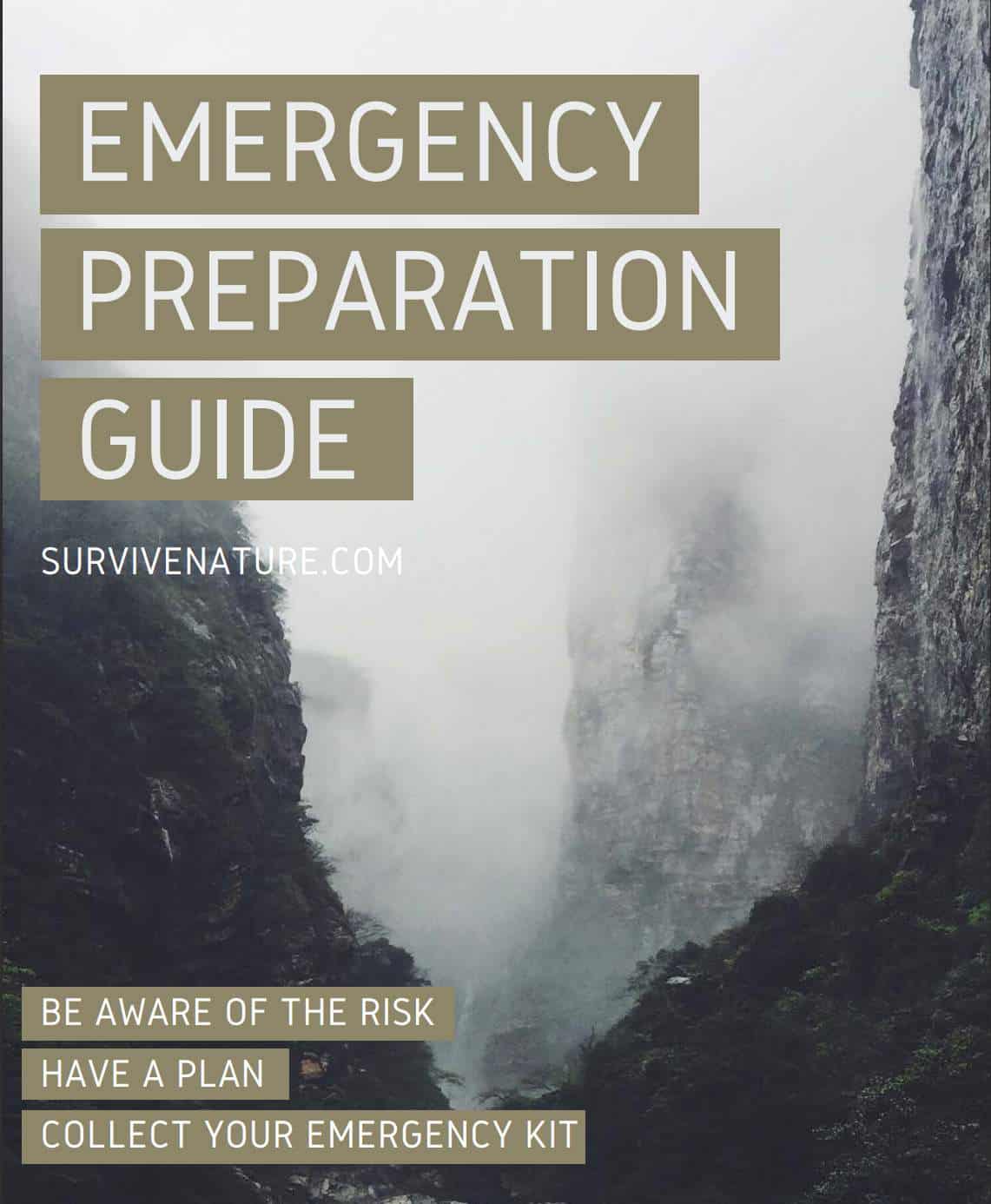Introduction
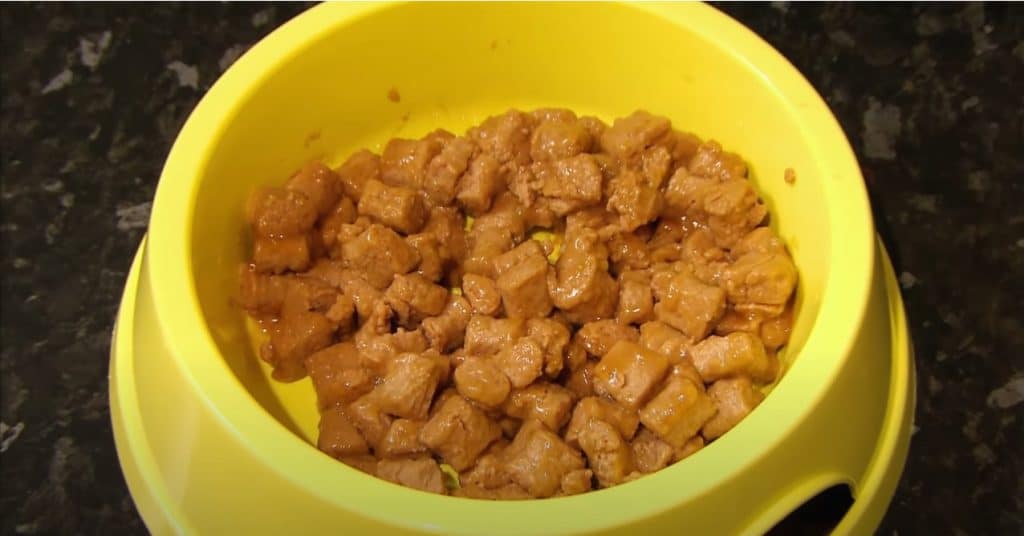
To the point
Pet food is often regarded as a number one choice in terms of emergency feeding options. There are articles, guides, and even movie scenes depicting people in a survival situation feeding on cat food or dog food products.
But is that even possible? Can people eat dog food in emergencies? Want to learn how to make mead at home? Or can you even replace regular human food with pet food products?
This article will answer these questions. Read on to find out if a pet food is fit for human consumption.
What Pet Foods Are Made Of
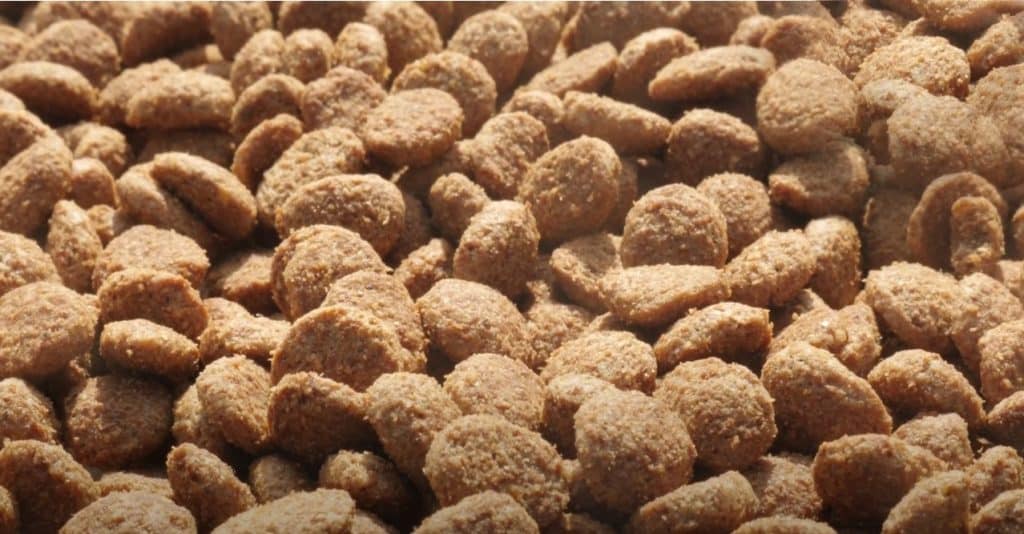
- meat,
- ground bones,
- bits and pieces of animal byproducts,
- vegetables.
In other words, canned meals for pets have everything that makes up a healthy diet for them.
There is even a wide variety of pet foods with chicken, gravy, and a ton of other tasty-sounding spices and add-ons. There are also other simpler snacks for cats and dogs. And gues, what – people can eat and of those. However, certain pet foods can contain bones that are not the best for human consumption.
There are also vitamins in dog foods and cat foods, as well. They are necessary to give our pets optimal nutrition, just like us humans. However, there is one thing – there is no Vitamin C in canned food for cats and dogs. The reason is, their bodies evolutionarily produce this vitamin themselves. In contrast, the human body cannot produce it, so we need to get it from regular human food rich in Vitamin C or get it in its pure form in powders or pills. Remember this fact – we are going to need it soon.
Another thing to note is that vitamin content in pet food is based on the diet requirements of pets, not humans. So eating dog food or can food will leave you without several necessary vitamins.
To know for sure, what is used in canned food for your pet, check the content info placed on the packaging.
Is Pet Food Safe For Human Consumption?

Usually, you will find this label on dry kibble or dry dog food due to the cooking process and storage conditions.
With canned food, meat, or other ingredients undergo thermal processing, which kills all hazardous bacteria. Then, the cooked products are packed in tightly sealed cans to be stored in a vacuum for a longer shelf-life. Get a mortar and pestle to process it in smaller consumable pieces. This way, canned dog meal is protected from bacterial contamination and will not become the cause of foodborne illness.
On the other hand, there are dry foods. And here’s the difference: dry pet food packaging is not airtight or 100%-waterproof. Thus, the food inside the bag is not protected from bacterial growth within the package. Plus, when open, dry dog foods become a perfect breeding ground for more microorganisms from the environment, there is an increased risk of food poisoning (some can be healed ith activated charcoal).
So it seems like it’s fairly okay to eat canned pet food and avoid eating dry pet food brands, right? Well, technically, that’s the idea, but what you should remember at all times is that canned foods for pet animals, while quite edible for humans, should not be regarded as fully nutritional food appropriated for regular human consumption.
Eating dog food (wet foods or kibble) is only possible when you must survive.
What Happens If You Eat Pet Food Products?

First of all, if you consume a portion of dog food, you WILL NOT get poisoned. As we said earlier, dog foods are pretty much okay for people to eat in their basic form. That’s because dog food contains similar nutritional elements like meat, chicken, vegetables that people can consume.
The reason is that evolutionary, humans and dogs – unlike other species – have lived together for thousands of years. This made nutrition for canines and humans quite similar. That is why dogs can easily eat human food feeding on our table scraps. They can even eat ice cream or chocolate products.
On the other hand, humans are more elaborate beings regarding their diets and nutrition plans. Therefore, we need a slightly different set of bio- and chemical elements for good health and, as a result, to survive.
Besides, most people would not find pet food’s taste good enough for eating it regularly.
What does dog food taste like?
The taste of dog/cat foods differs and depends on the production quality and initial products used. There are many brands out there producing different quality food for our pets. Some look and smell quite tasty for humans. Some may seem disgusting since pet food producers use specific flavors that attract pets but are not necessarily smell tasty to humans.
But as far as flavors go, most pet foods sold in the United States imitate beef, pork, and chicken. The high-quality canned pet products will resemble canned meat or chicken products we buy for ourselves.
However, even if dog food may taste good to you, that does not mean you should keep on eating it.
Eating Pet Food
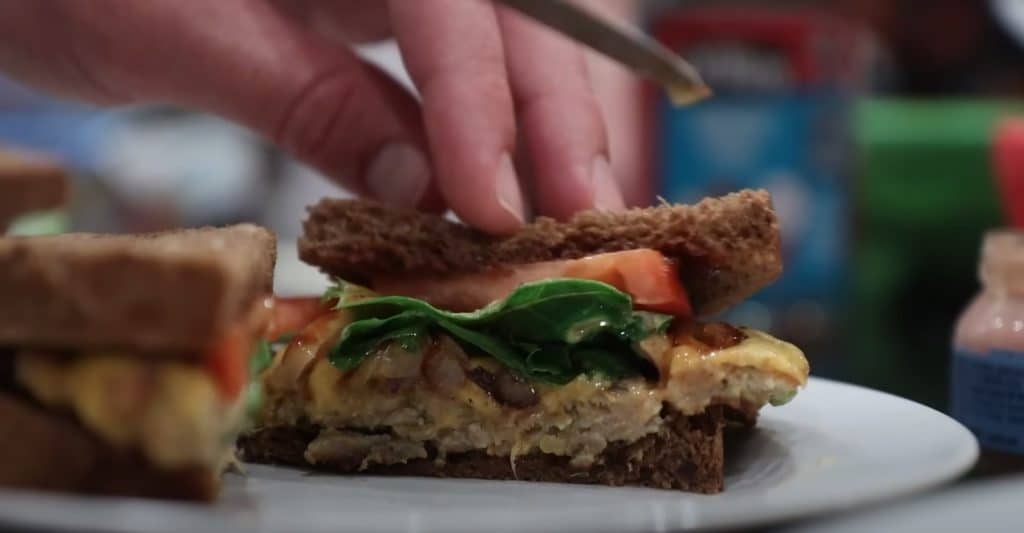
Short-term effects
The short-term consumption of dog food will not have any effect on your health. There is hardly any risk of getting sick due to digestive issues since dog food – wet canned brands and kibble – has nothing that a human stomach could not digest.
So should you find yourself in a situation where dog food is your only option: feel free to treat yourself.
Eating pet food: long-term effects.
Problems regarding the consumption of pet products will occur if you keep eating them for a long period of time.
The main reason for that is because neither dog food nor cat food is initially produced for humans. So, even though we can feed our pets from our table, our species need a different set of elements to stay active and healthy.
Thus, cats and dogs don’t need Vitamin C because their bodies produce it. That is why there is no such vitamin in their foods. And should you eat pet food for a long enough time, you will face Vitamin C deficiency.
Next, dog food is rich in protein. This is great because people need protein as well. But the problem is that at the same time, dog food is low on other crucial elements like carbs. This makes for a serious risk of malnutrition for humans.
So a long-term effect of eating dog food is obvious – you will get sick due to a lack of critical nutrients in your body.
The Anne Kadet Experiment
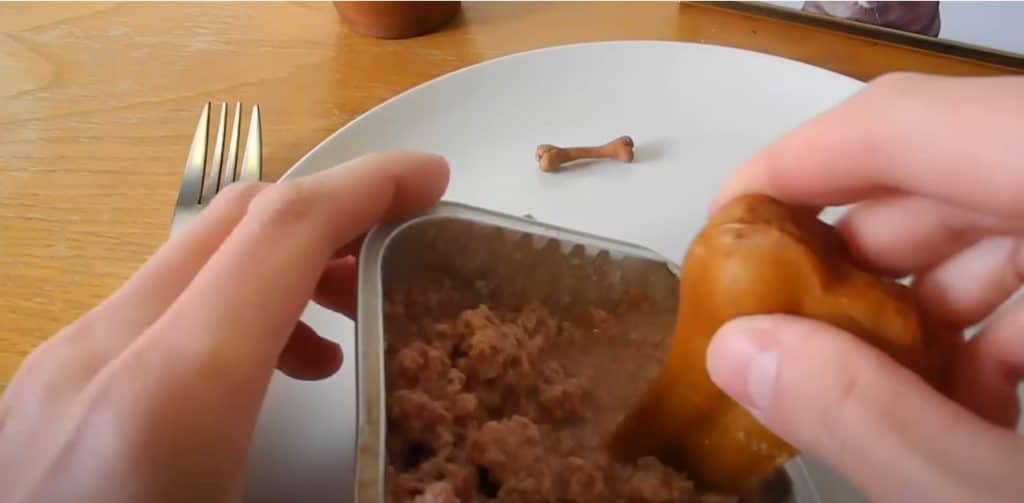
Previously, Anne had a deep experience in paleo dieting – a diet based on consuming lean meats, eggs, and vegetables. When inspecting dog food labels, Anne found out that the ingredients used in foods for pets were very close to those elements that her body needed when she went paleo. Besides, dog food was wheat-gluten-free, high in protein, rich in Omega-3 and Omega-6.
Another reason for taking up a dog-food diet was purely financial. Anne thought it was a lot cheaper than the paleo diet plan. And that’s how the experiment started. It took six days.
Upon the experiment’s completion, Anne came to the following conclusions:
- Dog food reduced blood sugar even with a greater effect than paleo products did;
- High-end pet food is actually tasty;
- People and dogs need different amounts of amino acids;
- Effective nutrition plans for humans and dogs don’t match.
However, Anne stated that dieting on high-quality dog food is still better than eating cheap food, for example, ramen noodles. And should Anne ever choose between the two, she would go with kibble and canned stew for pets than low-end fast-food and processed products.
Conclusion
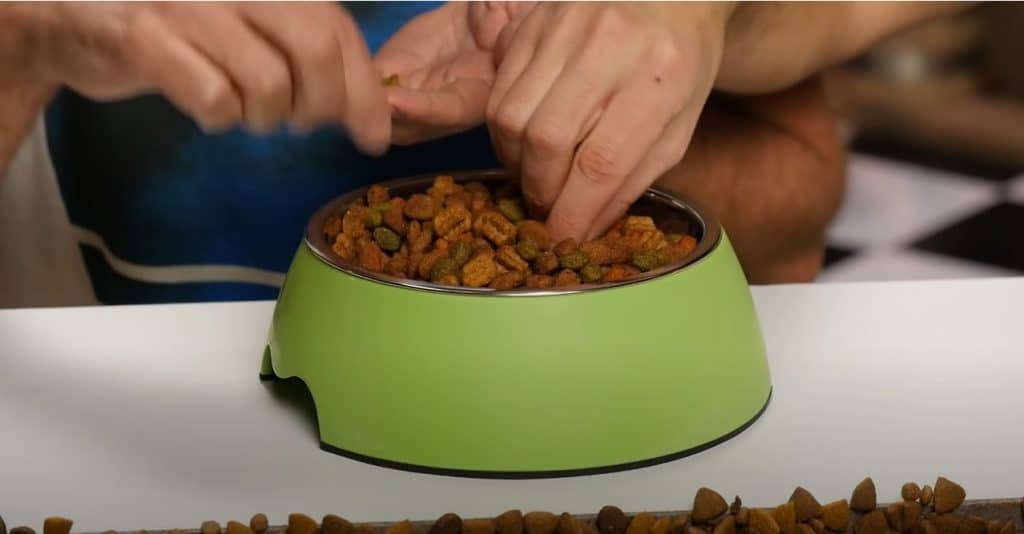
Frequently Asked Questions (FAQ)
Is dog food fit for human consumption?
Yes, people can consume dog/cat foods, although these products are not specifically produced for human consumption. This means that food for pets cannot be regarded as a healthy substitute for regular human meals. The long-term consumption of foods for dogs or cats will negatively affect human health, resulting in malnutrition.
Is it safe for humans to eat dog treats?
Technically speaking, dog treats are safe to be consumed by humans. But there are a few things to take note of. First, it is best to eat canned canine foods since they get previously cooked and are bacteria-free. Second, one can only eat foods for canines for a short period of time – consuming such products on a regular basis, especially instead of traditional human meals, will result in critical nutrients deficiency.


